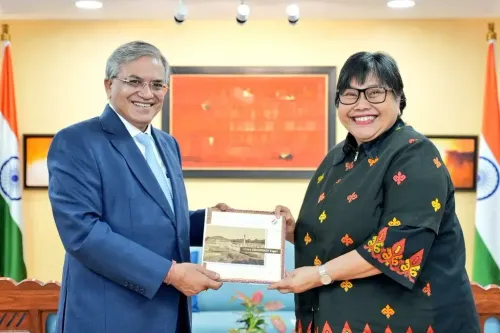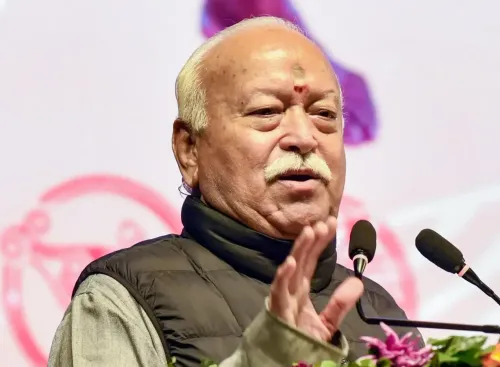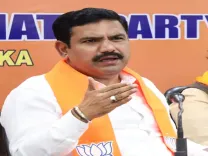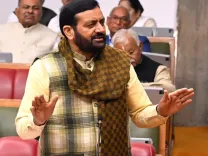Is the Government Prioritizing Ease of Research to Enhance India's Science and Innovation Landscape?
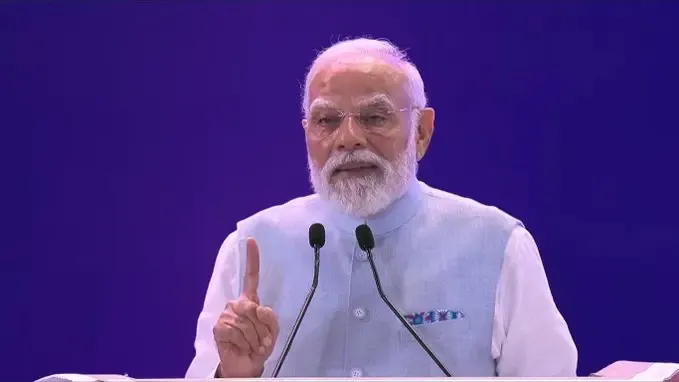
Synopsis
Key Takeaways
- Government's commitment to enhancing research through the RDI Fund.
- Focus on private sector investments in innovation.
- Significant reforms in financial regulations to facilitate research.
- Rise in women participation in STEM fields.
- India's R&D expenditure has doubled over the last decade.
New Delhi, Nov 3 (NationPress) The government is committed to promoting ‘Ease of Doing Research’ to enhance the science and innovation landscape in India, Prime Minister Narendra Modi stated on Monday during the inauguration of the Rs 1 lakh crore RDI Fund aimed at encouraging private sector investments in the nation.
The Research, Development, and Innovation (RDI) initiative was officially introduced by the Prime Minister at the Emerging Science & Technology Innovation Conclave (ESTIC 2025) taking place in the national capital.
This scheme, which received approval from the Union Cabinet in July, is designed to propel research and development (R&D) within the private sector.
The RDI initiative represents a substantial fund within the Anusandhan National Research Foundation (ANRF), launched in 2023.
“We are concentrating on Ease of Doing Research so that a progressive ecosystem of innovation can thrive in India. To realize this vision, our government has implemented significant reforms in financial regulations and procurement policies,” PM Modi remarked.
“We have initiated the Research, Development, and Innovation program, underpinned by a dedicated funding of Rs 1 lakh crore. This considerable investment is intended to benefit the public and open up new pathways of opportunity. Our aim is to cultivate a culture of research and development within the private sector as well,” he added.
“For the first time, funding is being specifically allocated for high-risk, high-reward projects, ensuring support for innovative ventures,” the Prime Minister noted.
He also emphasized how the government has streamlined various incentives and supply chain frameworks to expedite the transition of prototypes from laboratories to the marketplace, contributing to an increase in R&D expenditure, patents, and startups.
“In the last decade, our R&D expenditure has doubled, showcasing our dedication to innovation. Furthermore, the count of registered patents has surged an impressive 17-fold. In the startup realm, India has become the third-largest ecosystem globally,” PM Modi stated.
The Prime Minister also highlighted the role of the ANRF in promoting research and innovation across universities, thereby creating new growth opportunities.
“You are all familiar with the vision of Jai Jawan, Jai Kisan for a long time. While focusing on research, we have also integrated Jai Vigyan and Jai Anusandhan into it. We have established the National Research Foundation for the advancement of research and innovation in our universities,” he stated.
The Prime Minister pointed out the significant rise in women participating in STEM education as a testament to the government’s commitment to improving STEM education in India.
“A decade ago, fewer than 100 patents were filed by women in India annually. Today, that figure has skyrocketed to over 5,000 each year. Moreover, women represent 43 percent of those pursuing STEM education in India—significantly higher than the global average,” he said.
“When science intersects with scale, innovation becomes inclusive, and when technology propels transformation, a foundation for monumental achievements is established,” he stated.
“Over the last 10-11 years, India has manifested this vision in real-time. India is no longer just a consumer of technology; it has emerged as a pioneer of transformation through technology,” PM Modi said, celebrating the country’s accomplishments across various domains, including the space sector.
He mentioned the triumphs of the Chandrayaan mission, Group Captain Shubhanshu Shukla, and the recent launch of the heaviest communication satellite by ISRO.
“Currently, over 6,000 of our deeptech startups are engaged in sectors like clean energy and advanced materials. India's semiconductor industry has also gained momentum,” PM Modi added.
The ‘ESTIC 2025’ conclave, scheduled from November 3-5, will gather more than 3,000 participants from academia, research institutions, industry, and government, alongside Nobel Laureates, distinguished scientists, innovators, and policymakers.
The event will focus on 11 pivotal thematic areas, including advanced materials and manufacturing, artificial intelligence, bio-manufacturing, blue economy, digital communications, electronics and semiconductor manufacturing, emerging agricultural technologies, energy, environment and climate, health and medical technologies, quantum science and technology, and space technologies.


